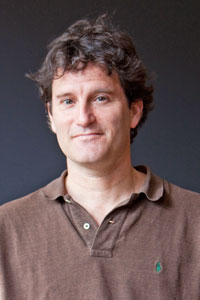News
Harvard University researchers will take leading roles in a new National Science Foundation (NSF) artificial intelligence research institute housed at the University of Washington (UW). The UW-led AI Institute for Dynamic Systems is among 11 new AI research institutes announced today by the NSF.
Na Li, the Gordon McKay Professor of Electrical Engineering and Applied Mathematics at the Harvard John A. Paulson School of Engineering and Applied Science (SEAS), is a co-principal investigator at the institute and will lead one of the main research thrusts. Michael Brenner, the Michael F. Cronin Professor of Applied Mathematics and Applied Physics and Professor of Physics at SEAS, and Lucas Janson, Assistant Professor of Statistics and Affiliate in Computer Science will also be part of the institute’s research team.
The AI Institute for Dynamic Systems will focus on fundamental AI and machine learning theory, algorithms and applications for real-time learning and control of complex dynamic systems, which describe chaotic situations where conditions are constantly shifting and hard to predict. In addition to research, the institute will be focused on training future researchers in this field throughout the education pipeline.
"The engineering sciences are undergoing a revolution that is aided by machine learning and AI algorithms," said institute director J. Nathan Kutz, a UW professor of applied mathematics. "This institute brings together a world-class team of engineers, scientists and mathematicians who aim to integrate fundamental developments in AI with applications in critical and emerging technological applications."
The overall goal of this institute is to integrate physics-based models with AI and machine learning approaches to develop data-enabled efficient and explainable solutions for challenges across science and engineering. The research will be divided into three main thrusts: modeling, control and optimization and sensors.
Li will lead the control research thrust. Li, along with Janson and the rest of the control research team, will leverage the successes of machine learning towards the control of modern complex dynamical systems. Specifically, they will be focused on several challenges pertaining to reinforcement learning (RL), a class of machine learning that addresses the problem of learning to control physical systems by explicitly considering their inherent dynamical structure and feedback loop.
The AI for control team will figure out how to develop scalable learning-based control methods for large-scale dynamical systems; maintain the performance of the learned policies even when there is a model class mismatch; and guarantee that the systems maintain stability and stay within a safety constraint while still learning efficiently.
“To date, the successes of RL have been limited to very structured or simulated environments,” said Li. “Applying RL to real-world systems, like energy systems, advanced manufacturing, and robot autonomy, faces many critical challenges such as scalability, robustness, safety, to name a few. We will develop critically enabling mathematical, computational, and engineering architectures to overcome these challenges to bring the success of AI/ML to our real-world systems.”
"One particular focus of ours will be to quantify the statistical uncertainty of what AI learns, enabling us to develop algorithms with rigorous safeguards that prevent them from harming anyone or anything while they explore and learn from their environment," said Janson.
Brenner, a leader in the field of physics-informed machine-learning methods for complex systems, will be part of the AI for modeling research team. That team will be focused on learning physically interpretable models of dynamical systems from off-line and/or on-line streaming data.
"Our research will explore how we can develop better machine-learning technologies by baking in and enforcing known physics, such as conservation laws, symmetries, etc.," said institute associate director Steve Brunton, a UW associate professor of mechanical engineering. "Similarly, in complex systems where we only have partially known or unknown physics — such as neuroscience or epidemiology — can we use machine learning to learn the 'physics' of these systems?"
Harvard is among several partner institutions including the University of Hawaii at Mānoa, Montana State University, the University of Nevada Reno, Boise State University, the University of Alaska Anchorage, Portland State University and Columbia University. The institute will also partner with high school programs that focus on AI-related projects and creating a post-baccalaureate program that will actively recruit and support recent college graduates from underrepresented groups, United States veterans and first-generation college students with the goal of helping them attend graduate school. The institute will receive about $20 million over five years.
Topics: Computer Science
Cutting-edge science delivered direct to your inbox.
Join the Harvard SEAS mailing list.
Scientist Profiles
Na Li
Winokur Family Professor of Electrical Engineering and Applied Mathematics
Michael P. Brenner
Michael F. Cronin Professor of Applied Mathematics and Applied Physics and Professor of Physics
Lucas B Janson
Assistant Professor of Statistics; Affiliate in Computer Science
Press Contact
Leah Burrows | 617-496-1351 | lburrows@seas.harvard.edu






